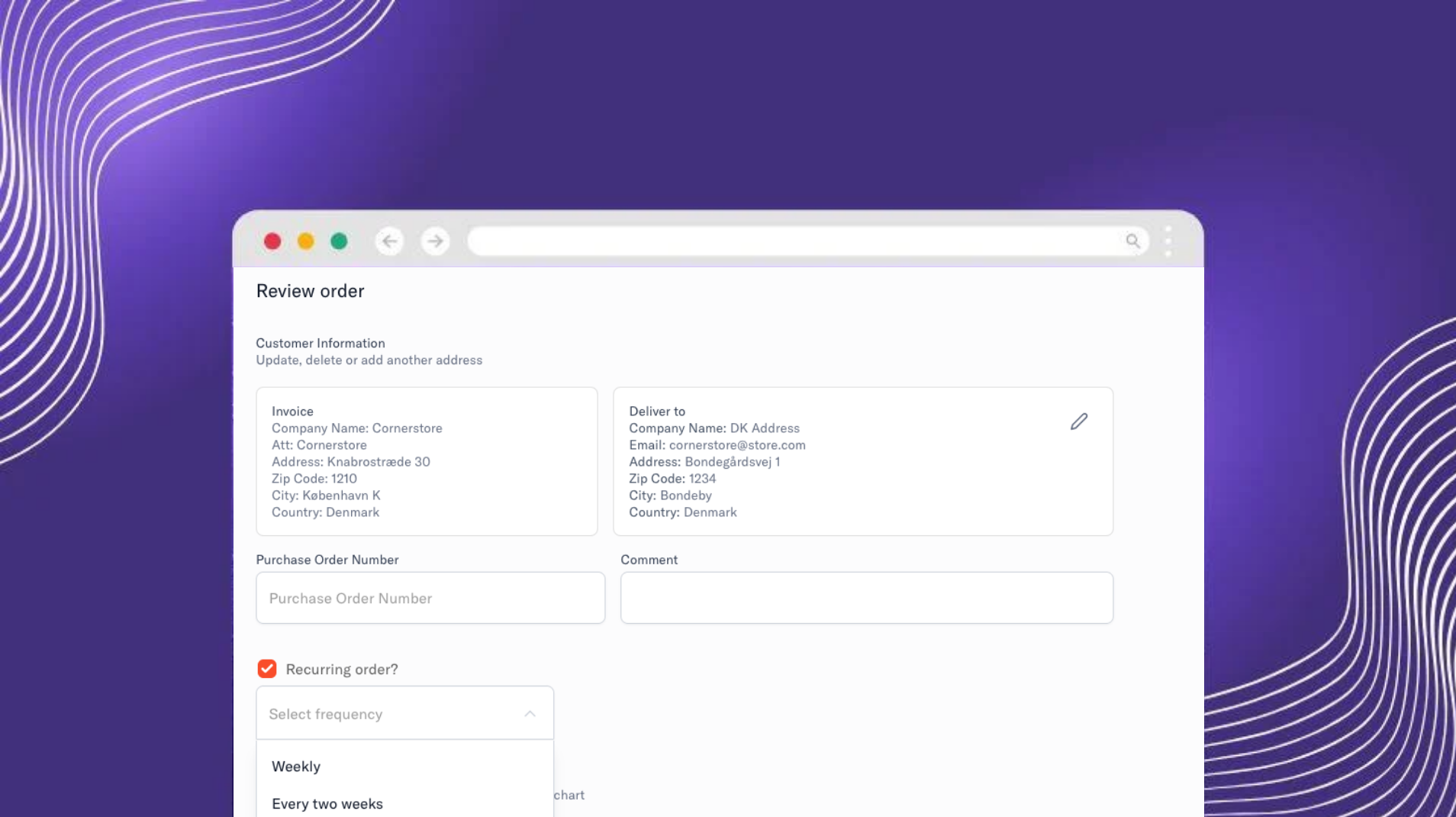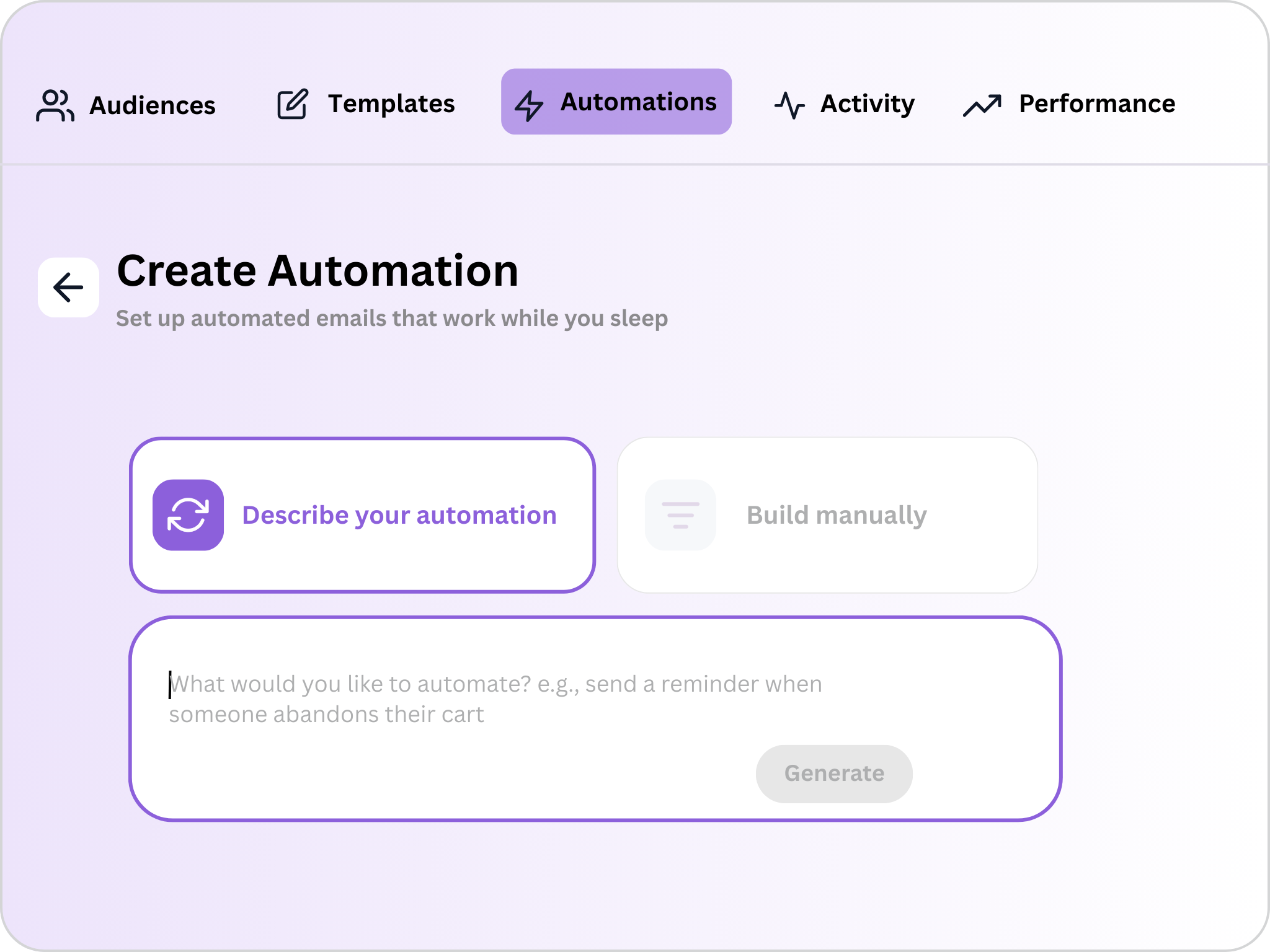Automate Your B2B Orders: Using Subscriptions as an Order Type

In the world of B2B eCommerce, businesses rarely operate on a single-order basis. Instead, most transactions are repetitive, driven by the ongoing needs of buyers. This repetition presents a significant opportunity for businesses to optimize order processes, and one of the most effective methods is through subscriptions.
Subscription orders allow businesses to automate purchasing cycles, reducing the need for manual reordering while ensuring a steady supply of products for customers. For companies selling consumables or frequently reordered items, integrating subscriptions into their B2B eCommerce model can result in increased efficiency, improved customer satisfaction, and long-term customer retention.
Table of Contents
- The Value of Subscriptions in B2B eCommerce
- Which Businesses Benefit the Most from Subscription Orders?
- Advantages of Subscription Orders for B2B Customers
- Implementing Subscription Orders in Turis
- Overcoming Potential Subscription Challenges
- Future of Subscription Orders in B2B eCommerce
- Untapped Business Opportunity
The Value of Subscriptions in B2B eCommerce
Many companies mistakenly believe that customers value the manual interaction involved in placing each order. The reality is quite different. Businesses, especially those managing multiple suppliers, are constantly seeking ways to streamline their purchasing process. If a supplier requires excessive manual effort for ordering, there is a high chance that customers will eventually look for more convenient alternatives.
A subscription model removes unnecessary friction from the ordering process, allowing customers to set up their preferred products and delivery schedules once and automate the rest. This not only saves time but also reduces the likelihood of stockouts, ensuring that customers have what they need when they need it.
Additionally, businesses that offer subscriptions create a more predictable revenue stream. Knowing when orders will be placed allows for better demand forecasting and inventory management, reducing waste and inefficiencies. With a subscription model, businesses can build stronger relationships with their customers and create loyalty through consistent service and reliable product delivery.
Which Businesses Benefit the Most from Subscription Orders?
Not all businesses will see the same level of success with subscription models. The suitability of subscriptions depends on several factors, including product type, customer demand, and order frequency.
Some of the industries where subscription orders can have the greatest impact include:
- Food & Beverage: Restaurants, specialty shops, and supermarkets rely on consistent stock levels to meet customer demands. A subscription order system ensures they never run out of key ingredients or products.
- Healthcare & Pharmaceuticals: Pharmacies, hospitals, and clinics require a constant supply of medical products, making them ideal candidates for automated recurring orders.
- Wholesale Distribution: Businesses dealing with office supplies, cleaning products, or industrial goods often order the same items regularly, making subscriptions a perfect fit.
- Retail & Consumer Goods: Retailers need steady restocking of best-selling items. A subscription-based system prevents disruptions in inventory and ensures shelves are always stocked.
- Manufacturing & Industrial Supplies: Businesses in the manufacturing industry require steady replenishment of raw materials, parts, and maintenance supplies. Subscription orders help maintain a smooth production flow.
The key indicator for determining whether a business can benefit from subscriptions lies in the similarity and frequency of orders. If customers consistently purchase the same items at predictable intervals, implementing subscription orders can significantly improve both their experience and the supplier’s efficiency.
Advantages of Subscription Orders for B2B Customers
- Time-Saving Efficiency: Customers don’t have to remember to place the same order manually each time.
- Reduced Risk of Stockouts: With automated ordering, businesses avoid disruptions caused by forgotten orders.
- Budget Predictability: Subscription models allow for better financial planning by providing clear expectations on costs.
- Stronger Supplier Relationships: A recurring order model fosters long-term commitments between suppliers and buyers, increasing customer retention.
- Customizable Flexibility: The best subscription models offer customers the ability to modify order frequency, product selection, and quantities based on changing needs.
- Enhanced Cash Flow Management: Businesses can forecast revenue more accurately, improving their financial stability.
- Competitive Advantage: By offering subscription orders, businesses differentiate themselves from competitors who still rely on manual order placements.
Implementing Subscription Orders in Turis
Turis makes it simple and convenient for businesses to enable subscription orders for their customers. With just a few clicks, a customer can mark an order as a subscription when submitting their purchase. By doing so, they commit to receiving the same order at a set frequency, eliminating the need to reorder manually.
How it works:
- When placing an order in Turis, customers can select the subscription option.
- They choose their preferred delivery frequency (weekly, bi-weekly, monthly, etc.).
- The order is automatically set as recurring, and the customer receives deliveries based on the defined schedule.
- If needed, customers can modify their subscription details, including frequency or product selection, from their Buyer Profile within Turis.
This level of automation benefits both businesses and customers by reducing friction in the ordering process and ensuring a seamless experience.

Overcoming Potential Subscription Challenges
While subscription orders provide numerous benefits, businesses should consider a few factors to ensure a smooth implementation:
- Flexibility: Customers should have the option to modify, pause, or cancel subscriptions without unnecessary complications.
- Clear Communication: Businesses must communicate the benefits of subscriptions and set proper expectations regarding delivery schedules and modifications.
- Inventory Management: Suppliers need to ensure they can meet recurring demand to avoid potential stock shortages.
- Payment and Invoicing: Subscription models require automated payment processing or invoicing structures that align with B2B financial workflows.
- Customer Education: Some B2B buyers may be unfamiliar with subscription models. Providing clear explanations, tutorials, and customer support can encourage adoption.
- Scalability: Businesses must ensure their logistics and fulfillment systems can handle recurring orders efficiently, even as the customer base grows.
Future of Subscription Orders in B2B eCommerce
The adoption of subscription-based ordering is rapidly growing in B2B eCommerce. As businesses continue to prioritize efficiency and automation, subscription orders will become an industry standard rather than an optional feature. Companies that adopt subscriptions early will gain a competitive edge by fostering deeper customer relationships and streamlining their operations.
Advancements in AI and predictive analytics will further refine subscription models, making it possible to automatically adjust orders based on customer behavior and demand patterns. Integration with other business tools, such as ERP and inventory management systems, will further enhance the subscription experience.
Untapped Business Opportunity
Subscription orders represent an untapped opportunity for many B2B businesses. By integrating subscriptions into their B2B eCommerce strategy, companies can offer customers a seamless, automated, and more efficient purchasing experience. Whether in Food & Beverage, Healthcare, Wholesale, Retail, or Manufacturing, businesses that rely on repetitive orders can benefit greatly from implementing a subscription model.
With Turis, enabling subscription orders is effortless. By allowing customers to automate their purchases, businesses not only improve customer satisfaction but also create a predictable and sustainable revenue stream. Now is the time to embrace subscription orders and unlock the potential for growth and efficiency in B2B eCommerce.

